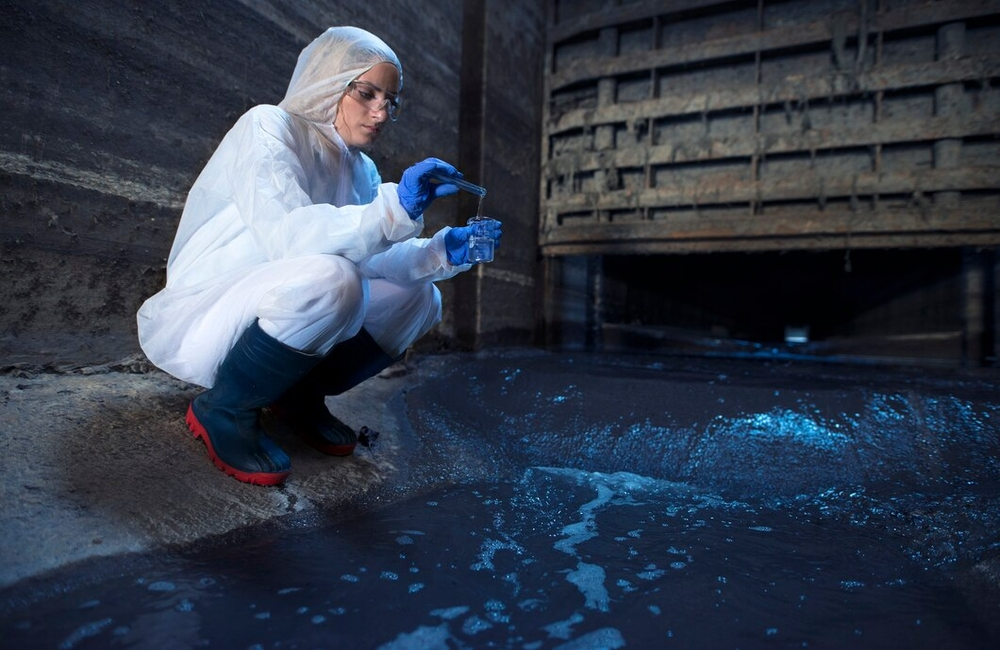For years Wall Street has been willing to invest in loss-making companies in pursuit of growth. That may be changing. “There’s been a clear change in investor sentiment,” Uber’s chief executive, Dara Khosrowshahi, said in a letter to staff on Monday. “Market size is irrelevant if it does not translate into profit.” “For perennial cash burner Uber it’s ‘show them the money’ because ‘now it is all about free cash flow,’” they said. The email described how the company will “treat hiring as a privilege and be deliberate about when and where we add headcount,” in a bid to cut costs. The shift to GAAP accounting standards follows US tech stock tumbling in the wake of higher rates. Uber is down 47% this year.
It's alive! US inflation mutates
After months of physical products pushing inflation higher, economists are becoming concerned that price increases are spreading to services. US consumer prices increased 0.3% in April from a month before, data released Wednesday showed. Services, excluding energy, surged 0.7%, the steepest increase since 1990. Matthew Klein, formerly with Barrons and the Financial Times, points out that inflation at sit-down restaurants is running nearly 10 standard deviations above the pre-pandemic. During the pandemic, goods inflation was fueled by demand as supply chains struggled.
Stablecoins need a dollar
Stablecoins are islands of tranquillity amid the turbulence of cryptocurrency. Holders are able to redeem coins such as Tether and TerraUSD for a fixed-value of US$1. Not anymore. The world’s third largest stablecoin, TerraUSD, broke its USD peg on Tuesday, trading under 30 US cents as of Wednesday. Tether joined a day later, falling to about 95 US cents before recovering. Crypto markets were engulfed by panic. Since Monday, bitcoin and ethereum have lost 13% and 20%, respectively. In the midst of this mayhem, ETF Securities and Cosmos Asset Management released Bitcoin and Ethereum ETFs listed on the ASX on Wednesday. They said trading volumes were “relatively muted.”
Xero soars after declaring Xero bottom line
The accounting software maker’s stock price was crushed this week as tech investors are shifting focus from top-line growth to free cash flow. Full year net loss of $9.1 million, down from a profit of $19.8 million full year last year, sent Xero crashing 11% Thursday. They blamed the result on on-off losses, with chief executive Steve Vamos saying “our strong revenue and subscriber growth gives us confidence to continue to invest for growth consistent with our long-term strategy.” Shares rose Friday in response and closed the week down 2.8%.
Further crushing for Australia’s market MVP iron ore
Prices of iron ore have been climbing throughout 2023, rising 25% from 31 December to 30 April. Higher commodity prices buoyed Australia relative to the global market. But the times they are a-changin’. Iron ore prices are 14% lower this month, dragging on blue-chip miners BHP, Rio Tinto and Fortescue Metals. The resource index on Australia's exchange is down 3.9% this week. Sentiment is turning negative as Chinese President Xi Jinping once again fanned investors’ worst fears, re-affirming last week that the government was doubling down on its unpopular zero-covid policy, which is stalling growth in Australia’s top iron ore buyer.
Is it finally the dawn of better days for Magellan?
It has been a big week for Magellan. The distressed fund manager disposed of its holding in the Mexican fast food chain on Monday, and then on Tuesday appointed a new chief executive. Then there's the good news. The fund manager said on Tuesday its flagship Magellan Global Open Class beat the benchmark in April for the second time in over a year. According to figures released last Thursday, funds under management (FUM) fell at a much slower rate this past March than in January and February this year when investors pulled over ten billion from the manager. FUM for April decreased from $70 billion to $68.6 billion.
ASX slides for a fourth week in a row: Market wrap with AAP
Australian shares have recovered Thursday's losses across the board, capping off a volatile week with the local bourse's best single-day performance in 15 weeks.
The benchmark S&P/ASX200 index closed Friday up 134.1 points, or 1.9%, to 7,075.1. The wider All Ordinaries climbed 141.1 points, or 1.97%, to 7,307.7.
“It’s much more positive today,” said CommSec market analyst Steven Daghlian.
“The market was pretty slow at the outset of the day, and has recovered fairly well from those levels through the day.”
The announcement of when Shanghai’s COVID lockdowns would end May 20, the first time the city has given a concrete timeline for reopening may have boosted sentiment, Dahglian said.
But the gains were really only a reversal of Thursday’s losses, he said.
“So we aren’t somehow discovering a new wave of optimism or something,” he said.
The ASX200 ended the week 1.8 percent lower, marking its fourth successive weekly decline, and on Thursday hit a three-month low.
“That downturn that began in mid-April, still appears intact for now, so I think the markets are looking for a more tangible catalyst,” Daghlian said.
“It could have something to do with the COVID situation in China, or possibly good news out of Ukraine, but I think the main thing is going to be watching inflation come down from the multi-year highs we’ve seen lately.”
All 11 of the ASX’s official sectors were in the green on Friday, with tech jumping 7.0 per cent after an 8.7 per cent sell-off on Thursday — the sector’s worst day since March 2020.
Square, the worst performer on Thursday, was the best performer on Friday, climbing up 15% to $114.88. Jack Dorsey’s company remained down 19.6 percent on the week, however.
Xero climbed 9.4%, Wisetech Global added 7.3%, and Altium rose 7.1%.
Health care rose 3.0% as blood products giant CSL jumped 3.3% to a three-month peak of $280.20.
The heavyweight mining sector rose 1.6%, still not fully recovering from Thursday’s losses.
























